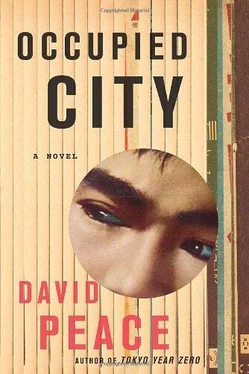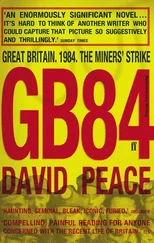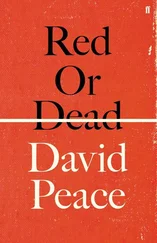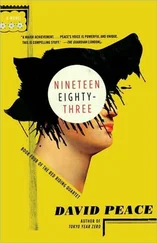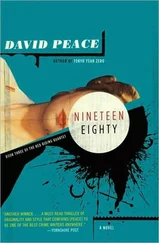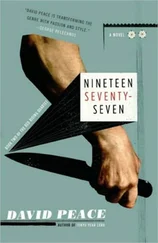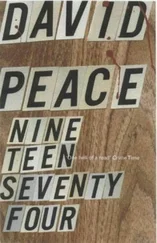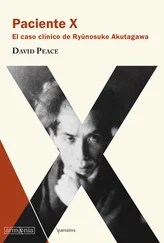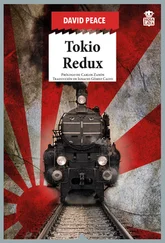But in front of me, across that bay, across the ocean, I knew there was America; an America not in ruins, for America has no ruins. America does not know invasion. America does not know siege. America does not know surrender. America does not know defeat. America does not know suffering as the rest of the world knows suffering.
Between their West and our East, there is not only a curtain, there is a vastness — across plains and over mountains, from the sea to the sky — a vastness and a sorrow. Two worlds now divided, as Comrade Andrei Alexandrovich Zhadanov observed, into the Imperialistic and the Democratic.
And this city and these people would seem to have made their choice, to have chosen their side. And once again, they seem to have chosen the wrong side of the river; once again, the wrong moorings. And though I have been here only three days, this Occupied City is a hard place to like, and its people — both the Occupiers and the Occupied — arouse in me no sense of either fraternity or sympathy.
But as the great Nikolai Vassilyevich Gogol once wrote, ‘It is no use to blame the looking glass if your face is awry.’
January 15, 1947
The Americans have been stalling but, finally, early this morning I went to the War Ministry with Comrade Colonel Lev Nicholaevich Smirnov and our interpreter. Comrade Smirnov, along with Comrade Colonel Mark Raginsky, has only recently arrived in Tokyo to assist our prosecution team at the IMTFE, now that the Nuremberg trial has concluded. And though this was the first time I had met Comrade Smirnov, I had of course read in newspapers and other reports of his heroic words as one of our prosecutors at Nuremberg.
The Americans were represented by Lt. Col. McQuail of G-2, Major Keller of the Chemical Warfare Service, a D. L. Waldorf from the International Prosecution Section, and their own interpreter who was very obviously also from G-2.
Of course, the meeting went entirely the way we had predicted it would; Lt. Col. McQuail asked us to explain what information we had which led the USSR to want to interrogate the subjects Ishii, Kikuchi and Ōta. So it was time for us to show our hand, so to speak, as we knew would happen.
Comrade Smirnov began by giving brief details of the capture, ranks and responsibilities of our prisoners Karasawa and Kawashima (during which the Americans feigned disinterest). Comrade Smirnov then began to detail the information obtained from our interrogations of the prisoners, mainly being the extensive experiments in BW at the Pingfan Laboratory and its associated field experiments, using Manchurian and Chinese bandits as materials, of whom approximately 2,000 are believed to have died as results of these experiments at Pingfan.
It was most interesting and very telling to note the reaction of the Americans to the evil catalogue of horrific murders and gruesome torture through perverted experimentation that Comrade Smirnov detailed for them: NOTHING. This proved to us that ‘our friends’ were either already familiar with these details from their own interrogations and sources, or completely devoid of all moral feeling. The only question that Lt. Col. McQuail remembered to ask Comrade Smirnov was in regard to Pingfan; to what extent had it been destroyed and by whom?
To this question, Comrade Smirnov replied that Pingfan had been completely destroyed by the Japanese themselves in their retreat and in an obvious attempt to cover up all evidence. All documents were also destroyed. So thorough was the damage, that our own experts did not even bother to photograph the ruins.
It was hard not to laugh at them, and also ourselves,but then Comrade Smirnov let them know we were not there to joke around, to play the fool for them.
‘The Japanese’, he said, ‘have committed a horrible crime, killing 2,000 Manchurians and Chinese, and Ishii, Kikuchi and Ōta were involved. Furthermore, the mass production of fleas and bacteria is very important. At the Nuremberg trials, an expert German witness testified that the spreading of typhus by fleas was considered the best method of BW and it would now seem that the Japanese have this technique. So it would be of value to the USA as well as the USSR to get the information. So it is our request that the Japanese be interrogated without being told they are liable to be charged and prosecuted as war criminals, and that they be made to swear not to tell anyone about the interrogations.’
With these remarks, the meeting concluded with the usual false promises and outright lies of quick replies and further meetings, of consultation and cooperation.
At the door, while the Colonels were trading boasts, this man Waldorf from the IPS suddenly whispered, ‘Tell me honestly Comrade, how long have you really known?’
‘Since the summer of 1938,’ I told him.
‘So long?’ asked Waldorf. ‘But how?’
‘Chyornye voronki,’ I said, knowing then that tonight I’ll dream again of the chyornye voronki .
But tonight I will not dream of the black ravens of Harbin, driven by the Japanese, to kidnap the Chinese. No, tonight I will dream of other black vans, driven by me. Tonight, I will be driving again down the streets in my second hand leather jacket, streets that lead to forests, forests that lead to graves, and these streets will not be Chinese streets, these forests not Chinese forests, these graves not Chinese graves, the streets will be Russian streets, the forests Russian forests, and my cargo will be Russian cargo, Russian citizens for Russian graves.
January 18, 1947
Was at the cinema in the ballroom below the Foreign Press Club. I went with Comrade B.G. and Comrade B.A. to see Rhapsody in Blue . Afterwards, we were joined by two of the American correspondents and we drank and argued once again about who won the war, and who will win the next one.
At the end of the evening, when we had all drunk too much, one of the Americans said to me, ‘So, Comrade, did you enjoy the movie? Do you like Gershwin?’
‘No,’ I said, but it was a lie for, although I did not like the film, I do like Gershwin.
February 9, 1947
Inquiring daily for decision. Told via IPS channels that our request is still being considered. Of course, from our intercepts of their communications we are fully aware as to the truth of the situation: Uncle Sugar Sugar Roger is being given the good old American-style runaround.
February 27, 1947
Comrade Vasiliev had a ‘full and frank exchange’ of opinions with their Colonel Bethune in regard to our request to interrogate former Lt. Gen. Ishii, et al. First of all, Comrade Vasiliev demanded to know whether or not the interrogations would be permitted. Colonel Bethune stated — through his G-2 interpreter — that no decision had been made as to whether or not the interrogations would take place. Comrade Vasiliev then asked if the location of the subjects — Ishii, et al. — were known. Colonel Bethune stated that if they were in Japan they could be found ‘presumably’. At this point in this ludicrous charade, I very much wanted to take out my pen and a piece of paper and write down Ishii’s address for him.Finally, Comrade Vasiliev insisted that the USSR merely wanted information pertaining to war crimes and agreed to make available to American interrogators the documents and the witnesses which we have, if desired. But Colonel Bethune merely reiterated that when the interrogations had been authorized by ‘a higher authority’, then the IPS would be notified. Comrade Vasiliev was not placated and demanded to see Gen. Willoughby in person to resolve the issue. Of course, this demand was denied.
March 7, 1947
Increasingly unpleasant exchanges between ourselves and ‘Our American Friends’ at GHQ. Comrade Lt. Gen. Kusma Derevyanko, our member of the Allied Council for Japan, submitted a memorandum in regard to the ‘stalemate’; there are five Japanese prisoners of ours who ‘our friends’ would like turned over to them for war crimes. Similarly, we request that ‘our friends’ turn over Ishii, et al., for war crimes. As usual, we have been told to wait ‘while Washington is consulted’.
Читать дальше
